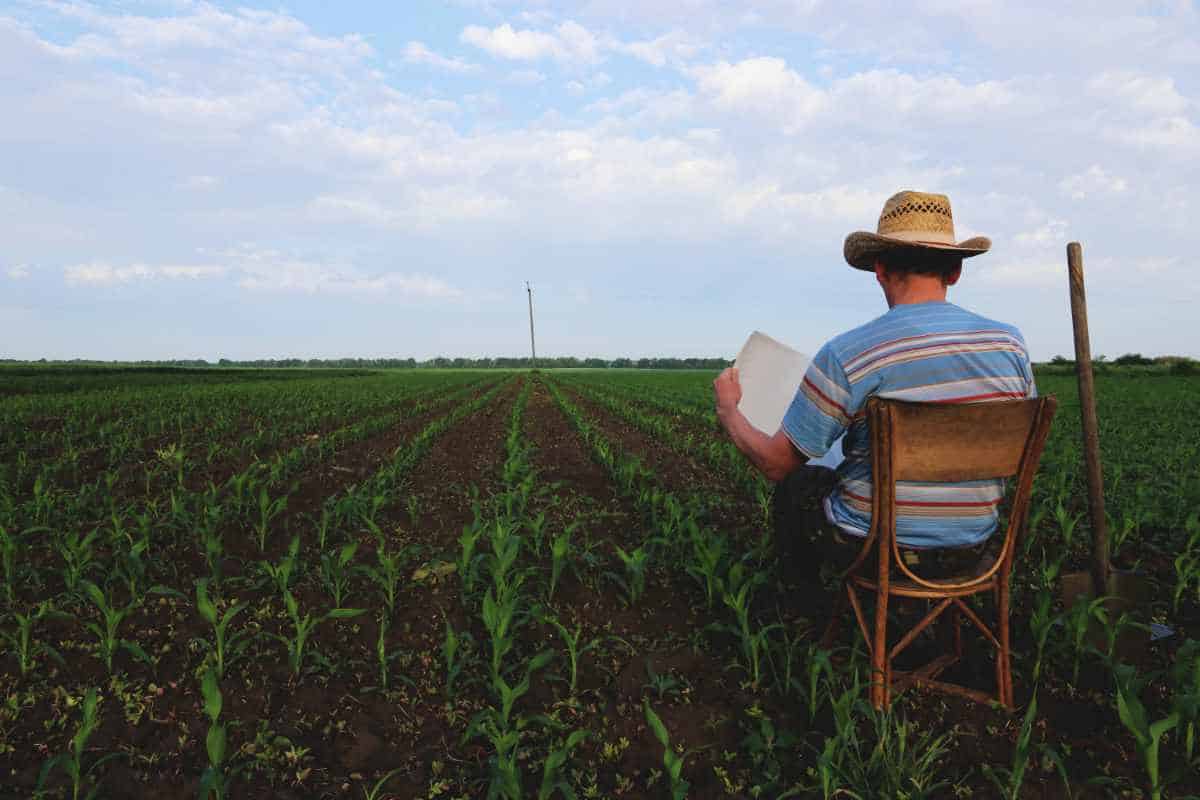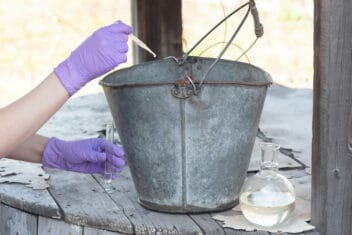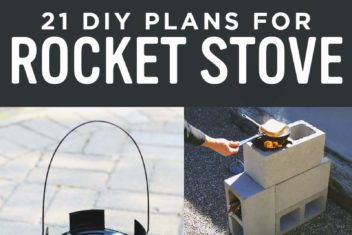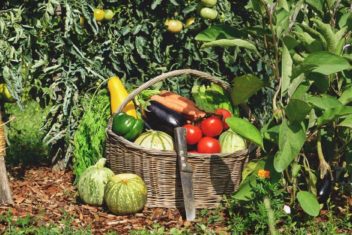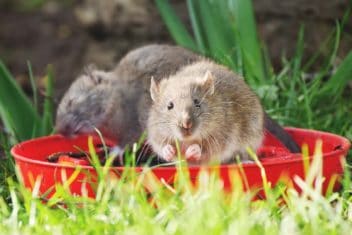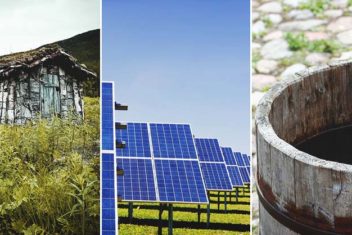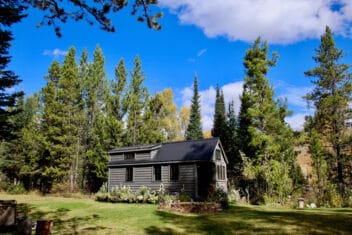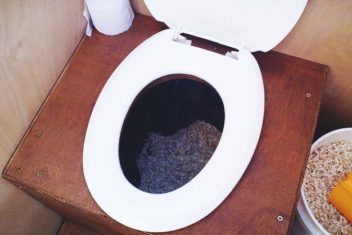On some level, most of us homestead so that we can be ready in the event of an emergency. Well, frankly we’re facing one today. Countries around the world are working hard to try to slow the spread of the novel coronavirus called COVID-19.
Now, there’s a lot of misinformation and panic is spreading as a result. But, for us homesteaders, we know better. The thing to do in any emergency — be it a virus or a weather event – is to stay calm.
I don’t want to downplay the significance of COVID-19. This is a new virus, with no current treatment or vaccines. It has the potential to mutate and become harder to fight if we don’t slow the spread. It’s also proving more lethal to some segments of the population (e.g. elderly or those with other health conditions) than the flu.
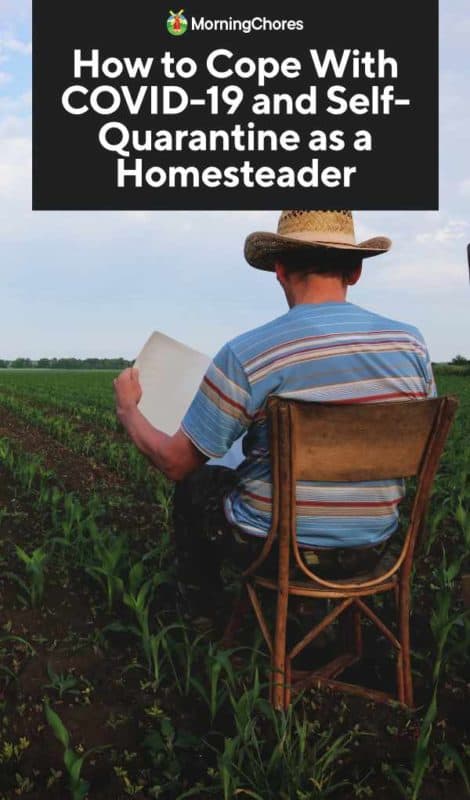
Stay Informed on the COVID-19 Facts
For starters, make sure you are getting your updates on COVID-19 directly from the most qualified medical sources.
- The US government authority on public health, the Center for Disease Control (CDC), has set up a page to keep the public informed on developments related to COVID-19. It includes interactive maps on outbreaks. It also provides details on the situation and actions Americans should take for safety.
- Impacted states are also setting up pages to inform their residents of the critical information on COVID-19. For example, my state North Carolina, has information on testing and guidance to families and organizations on how to limit the spread of the virus. You can do a web search for “your state + government + COVID-19” to find the link for your state. (Note that official state-run sites, in the US, end in “.gov”.)
- Websites that end in “.edu” are for educational institutions such as universities. These may also be useful sources of information. For example, John Hopkins University is tracking cases of COVID-19 around the globe. Its maps are being used by news media for up to date information on the virus’s movement.
- The World Health Organization (WHO) also has a page dedicated to disseminating current information about the global spread of COVID-19. If you live outside the US or have friends and family in impacted areas, this an authoritative international information source.
Personally, I have bookmarked all the sites above. I review them each morning for updates. That way I know I have the most current information and am prepared to respond appropriately for my safety and for the safety of others.
Consider Others At All Times

So, it’s extremely important that we all take this risk seriously and not just go on with business as usual. Even if you contract COVID-19 and only suffer mild flu-like effects, you can transmit the disease to others who might die from it.
Just think about the seriousness of that for a minute.
By not self-quarantining if you’ve been exposed to COVID-19, you could indirectly be the cause of someone else’s death.
That’s why it’s so critically important that we all stay informed about this virus and do our best to prevent it from spreading. Here are some things that you as a homesteader can do to stay safe and help slow the transmission.
Consider the Indirect Impacts
Beyond the risks of catching the virus, global financial markets are struggling. Some people are panicking. Basic goods like toilet paper and water are disappearing from the shelves.
The reality is, even if we do control the spread of the virus and reduce the loss of lives through a proactive global response, the impacts from COVID-19 will linger for some time. Lost time at work, reduced productivity in factories, and financial losses are already taking a toll.
The good news is that as homesteaders, we’re more prepared than the general population to get through these kinds of hardships. After all, being less dependent on outside resources is a fundamental of the homesteading ethos.
As such, we’ve got the resources and mental fortitude to make the best of a complicated and kind of scary situation. Even so, take some time to review your homestead systems and prepare for the long-term impacts of COVID-19.
How to Prepare for the Long-Term
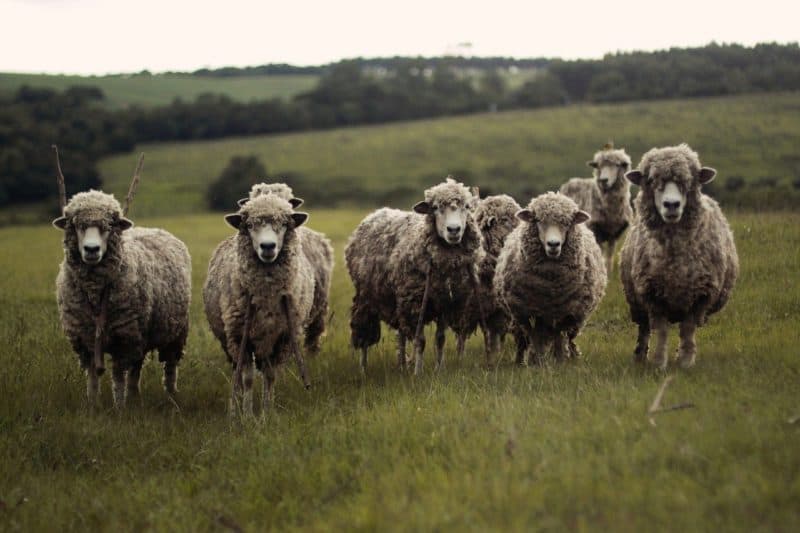
Beyond just worrying about the virus, you also want to think about how your homestead can sustain you through the economic and industry-related challenges.
If you are new to homesteading, you may not have had enough time to set up all your systems for self-sufficiency. Even if you’ve been doing it for a long time, you may not have had to fully depend on your systems for an extended period of time.
So, no matter where you are on the homestead spectrum – right now is a good time to take stock of your readiness to hunker down at home for an extended period of time.
Here are some things to consider.
1. Vital Systems
Vital systems like electricity, water, and sewage will likely continue to work during the virus outbreak. However, with so many people encouraged to work from home, take leave, and at a higher risk of becoming ill, you should expect some occasional delays in services.
For example, if a storm knocks out a powerline, it might not be back online as quickly as it would be under normal circumstances. So, think about how you’ll handle extended outages.
Make sure you have a good plan. If you are just getting started on emergency preparedness, check out a few of our resources on the subject.
Even though they may not directly relate, many of the needs detailed are basic and apply to any emergency be it a virus of a winter storm.
- 20 Tips for Winter Preparation for your Homestead (from Personal Experience)
- 5 Best Survival Kit Reviews: Be Well Prepared With This Emergency Kit
This particular post may be very appropriate when prepping for self-quarantine:
2. Water Supply
Water is the most essential thing to have in any survival situation. Make sure you have enough for you and your livestock for an extended period of time.
Here are some links to help:
- How to Purify Water as a Life-Saving Emergency When SHTF
- Off-Grid Water Systems: 8 Viable Solutions to Bring Water to Your Homestead
- 16 Long-term Water Storage Options
3. Food Supply
Also, check your food supply. Do you have enough for you and your animals to last several weeks to months? Or do you have a plan to deal with shortages?
Besides what we keep in the freezer, dried, and canned, we have a lot of food walking around our landscape right now in the form of livestock.
Under good circumstances, we might not process these animals. However, if feed costs skyrocket or we are confined for long periods, processing is always an option.
This is not always fun to consider. But, as part of being prepared for potential long-term complications from a global economic downturn, think about your longer-term options.
Also, since we are heading into spring, you may want to focus on staple crops, secure more seeds, and scale up your compost so you can grow more food for the long-term or to replenish depleted supplies.
- Survival Cooking: 18 Off-Grid Cooking methods Without Electricity
- Campfire Cooking Methods and Delicious Recipes
- Survival Food Perfect for Emergencies
- Edible Wild Plants You Can Forage for a Free Meal
4. First Aid
Finally, make sure your first aid kit is well-stocked. The more first aid you can handle at home, the better your chances of staying out of potential high-risk transmission centers like hospitals and doctor offices.
Stores are already selling out of things like alcohol, hand sanitizer, and bleach that are necessary to protect against COVID-19. But for minor injuries, not related to COVID-19, home remedies and supplies you may already have lots of like iodine, garlic, and honey can be effective.
Do keep in mind that experts are saying our homemade sanitizers and remedies may not be aggressive enough against COVID-19. So seek professional help if you have serious coughing, shortness of breath, and fever.
- Emergency Supplies List
- Medicinal Weeds you can Forage in Your Backyard
- Medicinal Herbs You Should Have in Your Garden
Wave Hello: Social Distancing

Social distancing is one of the easiest things you can do to reduce your risk of coming into contact with the virus. Essentially, this means stay home as much as you can.
I don’t know about you, but as a homesteader, this doesn’t really seem like a hardship. I’ve got plenty of activities to keep me busy and I’m sure you do too. Still, being isolated from your outside social networks can be difficult.
1. Assess Your Risk
Churches, pot-luck dinner clubs, garden groups, and more are all potential sources of transmission. Eating out, shopping, going to the theatre, and other similar activities are also possible points of contraction.
However, these businesses and organizations all suffer without support. So, rather than give them up entirely, some people are just being more conscious about the risks. In Italy for example, cafes are still open. But, people are sitting several tables apart and arriving on staggered schedules to reduce the risk of transmission.
Young, healthy people tend to be at lower risk for having an acute response to COVID-19. As such, it may be OK for those of you in that group to continue your social activities unless advised by officials. But consider that you may be exposing someone at home, with a less robust immune system.
2. Minimize Transmission Vectors
Higher risk groups such as the elderly or anyone with an underlying health condition may want to socialize less frequently and focus on risk minimization. Opt for less crowded locations or go during off-hours.
Forego greetings like hugs and kisses. Sit further away from others. Avoid touching your face. Wash your hands more frequently when out in public.
Also, keep track of your movements. That way just in case you contract the virus, you can help authorities identify vectors of transmission and reduce risks to others.
Stay Positive And Enjoy Your Homestead
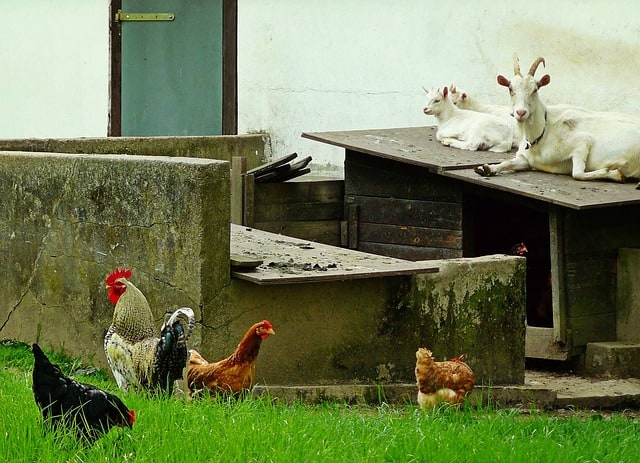
COVID-19 is going to disrupt our lives. It may impact people you care about directly. It will impact all of us indirectly. That means you may have to make hard choices and may face additional stress in your daily life.
Keeping mentally fit by focusing on the good, and on your homestead, will be challenging under these circumstances. Yet in all the hardships faced throughout history, there are always stories of people finding ways to cope by taking joy when they can.
I think homesteaders, in particular, are well suited to be positive even in hard times. Take pleasure in your homesteading activities. Appreciate your good health. Use that extra time not spent at frequent social events to get organized, to work on projects, catch up on reading, or enjoy family time.
In the meantime, all of us here at Morning Chores wish you and your families and friends good health and security during these difficult times.
Remember to remain calm, make well-informed decisions, and stay safe and we’ll all get through this faster.
